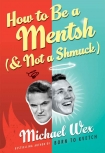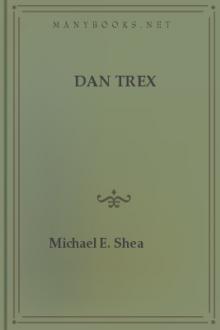How to Be a Mentsh (and Not a Shmuck), Wex, Michael [top inspirational books .txt] 📗

Book online «How to Be a Mentsh (and Not a Shmuck), Wex, Michael [top inspirational books .txt] 📗». Author Wex, Michael
Cain and Abel and, 70
Jacob’s brothers and, 70–71
rechanneling of evil and, 116–17
Joseph and his brothers, 70–71
Joshua ben Levi, Rabbi, 37–38
Judaism
based on consensus, not decree, 35–38
collective guilt and, 30–31
community and, 30–35, 42–48, 90–91
prohibitions and, 49–52
purpose of ritual practices, 38–48
right act for wrong reason, 52–58
traditional view of childhood, 24–26
Kaddish, 35, 48
Kagan, Yisroel Meyer, 89, 138
Kamtso and Bar Kamtso, 71–74, 96, 101
anger, vengeance and, 74–77, 93–95
Kapdan, 150
Karo, Rabbi Joseph, xv
kbilel ba-shem, 49
khnyok, 53–54
King of Comedy, The (film), 17
knowledge, use of, 96–103. See also study
Kohlberg, Lawrence, 149
kosher, 22–23
kosher khazer fisl (kosher little pig’s foot), 143
Kruschen, Jack, 122
Landau, Wolf, 109–10
landsmanshaften, 47–48
Langland, William, 45–46
Lansky, Aaron, 21–22
Laws Concerning the Misuse of Sacramental Objects. See Mishneh Torah
Lemmon, Jack, 119, 122
“Long Black Veil” (song), 93
loshn ho-ro (pseudo-truths), 89, 91–93
Lucifer Effect, The (Zimbardo), 163–64
MacDowell, Andie, 173
Madoff, Bernie, 116
Maharsho (Samuel Eidels), 73
Maimonides, Moses
on anger, 74–75, 115–16
on bor, 97
Maimonides, Moses (cont.)
on commandments, 49–50
on golems, 62–63
Guide for the Perplexed, 87, 88
Malbim (Rabbi Meir Weisser), 27–28
Markopolos, Harry, 116
marriage, as end of self-centeredness, xviii—xix
Menachem-Mendel of Kotzk
esreg story, 109–110
prince story, 16
tsaddik and, 127–28
mensch, xii
mentsh
ability to anticipate shmuckishness, 77–78
beginning of mentsh-hood, 156
character traits of, 23–30
idea rooted in education, 29–30
original meaning, 19–20
revenge of, 177–78
use and spelling of, xi–xiii, 20
mezuzah, 36
Midrash, use of term, xiv
Midrash Shmuel, to Ovos, 79, 101
minyan, 48
Miracle on 34th Street (film), 6
Mishna, xiii—xiv
use of golem and, 59, 61–62
Mishneh Torah
Laws Concerning the Misuse of Sacramental Objects, 49–50
Laws of Conduct, 74–75
mitzvahs
guests and, 108–9
seeing through to end, 142–43
Modern Yiddish-English/English-Yiddish Dictionary (Weinreich) 20–21
Moës khitin (wheat money), 90–91
Murray, Bill, 172
Nachman bar Yitzchok, Rabbi, 82
National Yiddish Book Center, 22
nebbish, 17
Odem, 27, 28
Di Uzida’s commentary on, 101–2, 111–13, 115–17
Ovos de Rabi Nosn, 146
Passover seder, 32
Peretz, Y. L., 14–15
Pesikta Zutrosi, Va-Eyro, 75
Piers Plowman (Langland), 45–46
Pinchas of Koretz, 116
prayer, study and, 126–28
Purim play, 10–11
rabbis, background and idea formations of, 138
Ramis, Harold, 172, 176
Rashi (Rabbi Shlomo Yitskhoki)
on Adam and Eve, 66–70
background of, xiv—xv, 137
on envy, 135
Hillel’s maxim and, 160
on Tamar and adultery, 85
on treatment of enemies, 33
responsibility, failure to accept, 65–70
Rubin, Danny, 175
Rubin, Mark, 129–130
Saul, king, 144
schmo, 120
schnook, 120–21
Second Temple, self-satisfaction and destruction of, xiv, 54–58, 71,74,77,149–50
seder, 32
self-sufficiency, 102–3
seykhl
lace in Jewish culture 103–8
study and, 108–9, 124–26
subduing evil inclinations, 111–14
using one’s intelligence and, 109–11
Shaarey Teshuva (Gerondi), 88
Shadrach, Meshach, and Abednego, 86
shame
Bar Kamtso story and, 72–79
prohibition against bringing to someone else, 82–94
Shammai, 91, 160, 161
and anger, 145, 149–51, 162
and proper speech, 91–92, 107
sheytl, 5–6
shlang, 66–68
shm prefix, 4–5
sbmek, xiii
shmekele, 2, 5, 6–7
shmekl, differs from shmok, 5–7
shmendrik, 16–18
shmok change from as-penis to as-fool, 11–13
differs from shmekl, 5–7
pronunciation, 120
shmook, 120
shmuck “getting caught” principle and, 129–30
meaning of, 2
offense given by use of, 2, 7–10
possibility of damage from, 130–33
self-regard and, xxi
use and spelling of, xiii, 10–11
shoyt, 5–6
shtekele, 2
shtok, 2
Shulkhan Arukh (Karo), xv, 36, 38–39
Sifra, 34
Sifre, 75, 131
Simon, Neil, xviii
speech, cheating in, 67–68
Stalin and Trotsky story, 106 study
Hillel’s maxim and Jewish devotion to, 165–71
prayer and, 126–28
seykhl and, 108–9, 124–26
Talmud, Babylonian
Avodo Zoro, 70
Bovo Kamo, 38, 34, 93
Bovo Metsiyo, 13–14, 67–68, 82–83, 84, 90, 140
Brokhos, 84, 139
Eruvin, 75, 107
Gitin, 54, 57, 71–73, 76, 139
Kesubos, 84, 91–92, 166
Kiddushin, 51–52
Makkos, 140
Nedorim, 75
Nozir, 175
Ovos, 53, 61–62, 63, 79, 96–97, 112, 130, 160, 168
Peah, 41
Pesokhim, 32, 79, 163
Sanhedrin, 42–43, 60, 84, 88, 89, 136
Shabbos, 41, 58, 74, 79, 94, 146, 147, 148, 150–51, 162
Shvuos, 42–43
Sotah, 53, 84
Tomid, 23, 135
Yoma, 49–50, 81, 153
Yoreh Deah, 36
Talmud, Yerushalmi Nedorim, 68
Sotah, 53
Tamar, in Genesis story, 84–85
Tarfon, Rabbi, 141
Tetragrammaton, 8–10
Trotsky and Stalin story, 106
tsaddik in pelts, 127–28
tsimmes, 40
Valdesolo, Piercarlo, 165–68
vengeance, differs from holding grudge, 81–82
Weinreich, Max, 11, 53–54
Weinreich, Uriel, 20–21
Weissner, Rabbi Meir (Malbim), 27–28
Who Desires Life (Chofets Chayim) (Kagan), 89
Wilcox, Rick, 64
Wilder, Billy, 118
Yekhiel-Meir of Gostynin, 116
Yerushalmi, use of, xiv
Yiddish language dictionaries of, 21–22
versus German spelling, xii-xiii mentsh as, 20–21
ways of speaking and study of, 105–8
Yiddish-English-Hebrew Dictionary (Harkavy), 20–21
yidisher kop, 111
yikhes, 117
Yitskhoki, Rabbi Shlomo. See Rashi Yochanan ben Zakkai, Rabbi, 56–58
Zechariah ben Avkilos, effects of self-satisfaction and, 54–58, 71, 74, 77, 149–50
Zimbardo, Philip, 163–64
Acknowledgments
Had Leigh Haber not suggested that I write something about how to be a mentsh, the subject would never have occurred to me. Had Bob Bookman and I not been talking about Billy Wilder one day, I might never have figured out how I wanted to write it. Had my parents not taught me to shut up and listen when smart people are talking, I might have missed both opportunities.
I’d also like to thank Betsy Rapoport for connecting me with my agent, Richard Pine, a real mentsh, without whose advocacy and advice this book would have remained nothing more than an idea. Stephanie Meyers, my editor at Harper, has been a pleasure to work with at every stage of this project. Her attention to detail and sympathetic approach to occasionally gnarly material meshed perfectly with the contents of the book.
Without these mentshn, this book would not exist.
Without my wife, Marilla, and my daughter, Sabina, the same could probably be said for me.
About the Author
MICHAEL WEX is a novelist, a professor, a translator, a lecturer, and a performer of stand-up and one-person shows. Wex has been hailed as “a Yiddish national treasure” and is one of the leading lights in the current revival of Yiddish, speaking widely on Yiddish and Jewish culture. He lives in Toronto.
Visit www.AuthorTracker.com for exclusive information on your favorite HarperCollins author.
ALSO BY MICHAEL WEX
Born to Kvetch
Just Say Nu
Shlepping the Exile
The Adventures of Micah Mushmelon, Boy Talmudist
Credits
Jacket photography © George Marks/Getty Images
Jacket design by Richard Ljoenes
Copyright
HOW TO BE A MENTSH (AND NOT A SHMUCK). Copyright © 2009 by Michael Wex. All rights reserved under International and Pan-American Copyright Conventions. By payment of the required fees, you have been granted the non-exclusive, non-transferable right to access and read the text of this e-book on-screen. No part of this text may be reproduced, transmitted, down-loaded, decompiled, reverse engineered, or stored in or introduced into any information storage and retrieval system, in any form or by any means, whether electronic or





Comments (0)